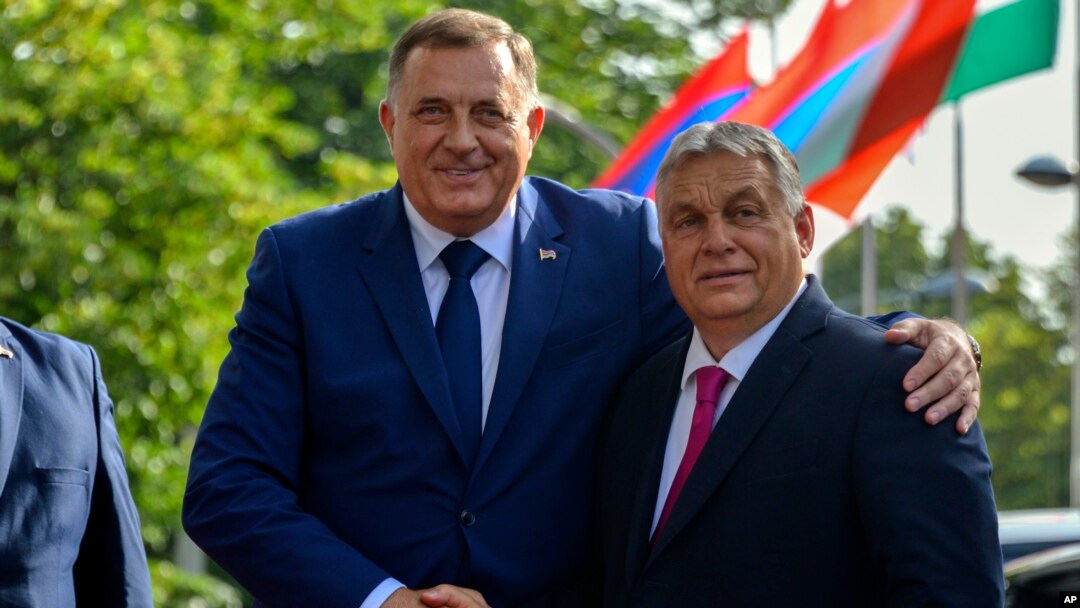Bosnia's international peace overseer, Christian Schmidt, annulled two laws Saturday that the Bosnian Serb parliament had adopted that defy the constitution and the terms of a peace deal that ended the Balkan country's war in the 1990s.
Schmidt, who as international High Representative in Bosnia has powers to impose laws and sack obstructive officials, also amended a law so that those seen as attacking the state institutions can be criminally prosecuted.
"Recent decisions by the National Assembly of Republika Srpska directly violate the constitutional order of Bosnia-Herzegovina and the Dayton peace agreement," Schmidt told a news conference in Sarajevo.
Schmidt was referring to lawmakers in Bosnia's autonomous Serb Republic who voted to suspend rulings by Bosnia's constitutional court and stop the publishing of the peace envoy's decrees and laws in the official gazette.
The Dayton peace accords ended nearly four years of war, in which about 100,000 died, by splitting Bosnia into two autonomous regions, the Serb-dominated Serb Republic and the Federation shared by Bosniaks and Croats, linked by a weak central government.
The region's separatist pro-Russian President Milorad Dodik, who has long criticized the court for having foreign judges on board, initiated the vote after the court last week decided to change the rules to be able to convene sessions and make decisions without Serb judges.
The Serbs say they do not recognize Schmidt, who was appointed in 2021, as the high representative because the U.N. Security Council did not endorse his appointment.
"Republika Srpska will not accept a single decision of the fake high representative," Dodik, who was sanctioned by the United States and the United Kingdom for corruption and obstructing the peace, said on Saturday.
Schmidt said that his decisions are effective immediately.
The U.S. embassy welcomed Schmidt's decisions, agreeing that he was defending the Dayton peace deal and the constitution upholding the rule of law in Bosnia.
"The United States supports the sovereignty, territorial integrity, and multi-ethnic character of Bosnia and Herzegovina and will continue to hold individuals engaged in anti-Dayton behavior responsible for their actions," the embassy tweeted.


